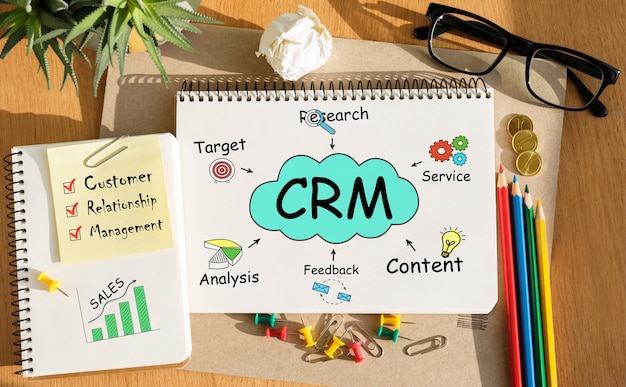The Critical Role of CRM in Elevating Small Business Success

Does your business struggle with issues like poor communication, slow sales, or ineffective ad campaigns? If so, it might be time for a CRM platform!
Hi there, I’m AJ! After selling my business for a hefty sum, I launched Small Business Bonfire to offer entrepreneurs valuable insights. Building my company was challenging, but everything changed for the better once I invested in CRM technology.
Keep reading to learn what CRM is, why it’s important, and how it can help your small business grow!
What is CRM? Simply put, CRM (Customer Relationship Management) is software that helps businesses manage and analyze interactions with current and potential customers. It stores and organizes customer data in one place, making it easier to track and improve relationships. Think of it like a school’s student directory, but for customers!
Companies use CRM systems to remember important details about each customer, offer better products and services, and meet their customers’ needs, leading to more sales and stronger relationships.
There are three types of CRM systems you should know about:
1. **Analytical CRM:** This tool analyzes customer data to provide valuable insights, helping your team improve various business aspects. It’s particularly useful if your company has an overwhelming amount of data.
2. **Collaborative CRM:** This software connects teams across a company, ensuring everyone has access to the same updated information. It helps bridge gaps between marketing, sales, and customer service teams.
3. **Operational CRM:** This system streamlines business processes related to customer relationships, offering tools for marketing campaigns, sales tasks, and automating repetitive activities. This frees up employees to focus on more customer-centric and creative tasks.
CRM systems are crucial for several key areas:
1. **Sales:** A CRM can streamline the sales process, improve customer relationships, and boost retention. Automation tools optimize sales processes, allowing teams to focus on high-value tasks and increase productivity.
2. **Marketing:** CRM provides a comprehensive view of customer data, helping marketing teams run targeted campaigns and improve their ROI. Automation of repetitive tasks allows marketers to focus on creativity and strategy.
3. **Customer Service:** CRM systems provide a unified platform, allowing customer service agents to access customer history and preferences. This enables personalized assistance, improving customer loyalty and satisfaction.
4. **Business Operations:** CRM streamlines workflows and enhances efficiency, reducing human error and allowing employees to focus on strategic tasks. It helps make informed decisions and optimizes operational processes, boosting overall business performance.
How do you know it’s time to implement a CRM system? Look for these signs:
– Struggling with customer satisfaction: CRM systems help organize and update information, improving service response times and building customer relationships.
– Lagging sales: A CRM can give your sales team a more organized view of customer data, allowing them to tailor approaches based on customer needs.
– Marketing inefficiencies: If your marketing team is bogged down by repetitive tasks, CRM automation can free up their time for more strategic efforts.
– Communication gaps: CRM facilitates seamless communication between sales and marketing by providing real-time data access, ensuring consistency.
CRM systems also predict sales trends by analyzing past customer interactions and behaviors, enabling better planning and strategy formulation.
In summary, CRM software is vital for your business, helping teams communicate effectively, streamline processes, and connect with customers on a deeper level. This ultimately leads to increased sales and a competitive edge. So, what type of CRM will your company implement?